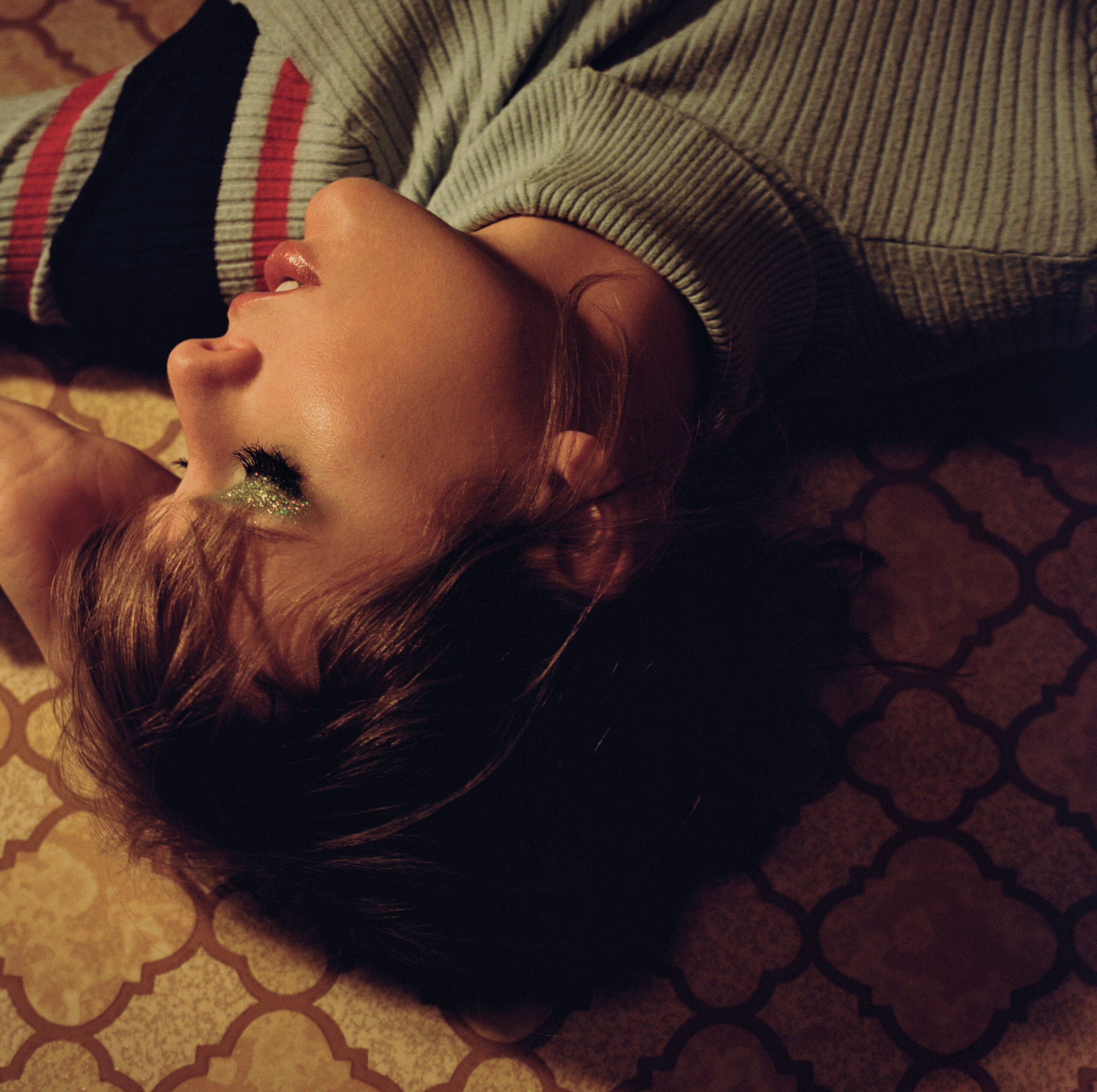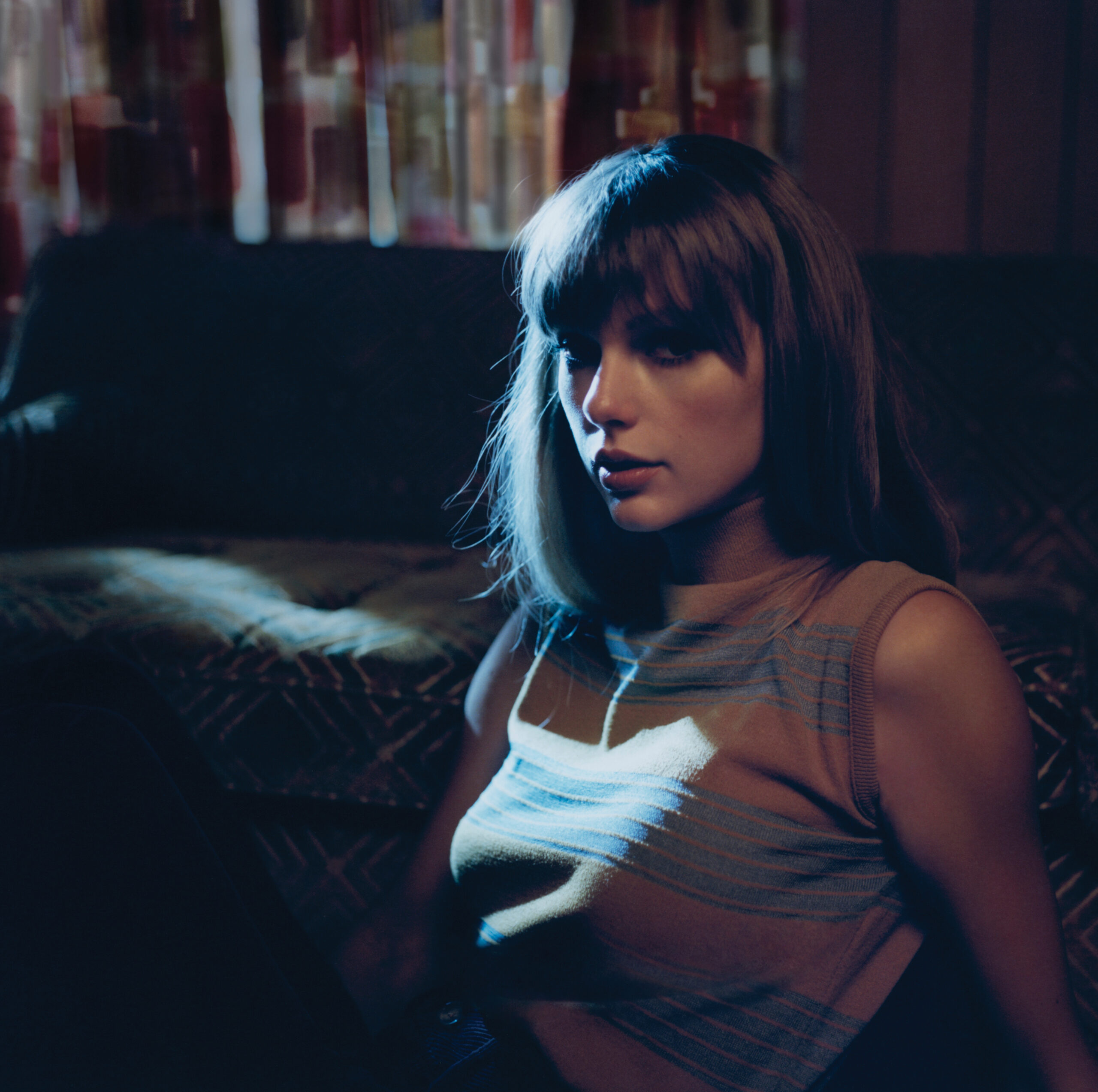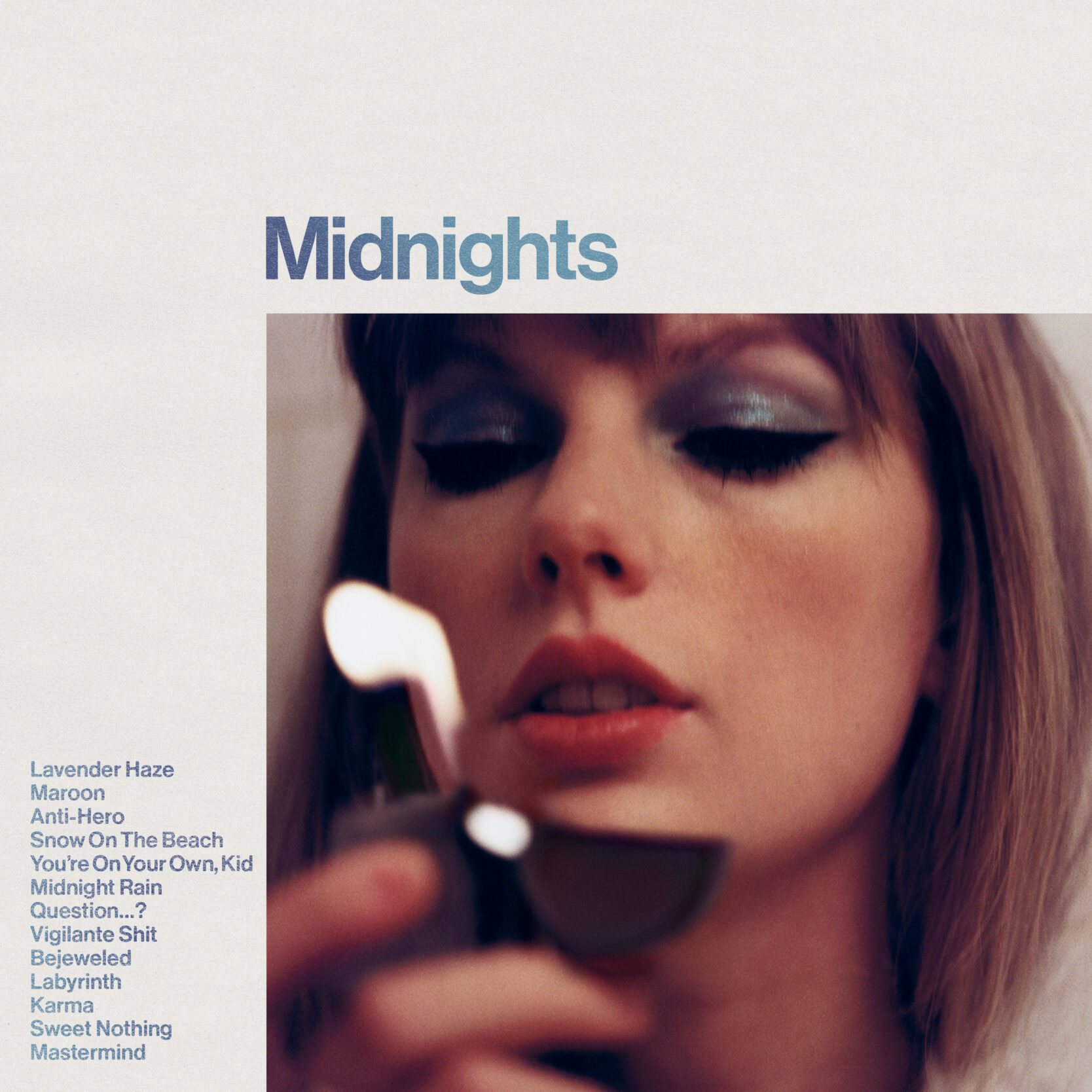Taylor Swift understands chaos.
Not the tangled path of breadcrumbs she leaves for her rabid fans, hinting at future lyrics and surprise release dates, twisting their adoration into TikTok conspiracy theories. No, those Easter eggs are meticulously placed, as Swift has gleefully confirmed.
Instead, the megastar experiences utter human disarray the way most of us do — in the middle of a sleepless night, when the mind slaloms wildly between our most vivid and intense memories, ping-ponging from heartache to passion, fear to hope, self-loathing to exasperation.
This is where Midnights, Swift’s daring 10th studio LP, out Friday, lives: in the opaque delirium we all find in the wee hours, wondering how we’ll claw our way toward sunrise. It’s an album of expertly crafted dark-pop confessions with flecks of glitter and aspiration — a purposefully fitful project mimicking her racing thoughts.

Also Read
Choppered and Tuned
The high-gloss pop production marks Midnights as a sullen sister to Lover, her honey-dipped 2019 effort, rather than a successor to 2020’s heartstrung Folklore and Evermore. The sonics are alike, as both Midnights and Lover were almost entirely produced and co-written by Jack Antonoff, the now-ubiquitous superproducer (Lorde, Lana Del Rey, the 1975) who’s worked on every Swift album since 1989.

With Antonoff again on board, Midnights is laden with familiar (if not overused) low hums and lush layers of vintage synths — the producer is obsessed with the 1982 Roland Juno 6 keyboard, the signature sound of his own pop-rock band Bleachers. Fittingly, all six touring members of Bleachers play on the new album at some point; multi-instrumentalist Evan Smith is heard most often, contributing buried bits of saxophone, clarinet, flute and keys on nine of the 13 tracks.
Antonoff’s influence expands further with the use of longtime Kendrick Lamar studio hand Sounwave and R&B singer-songwriter Sam Dew, both of whom joined Antonoff for an electro-pop side project called Red Hearse in 2019. The trio gathers again here to establish the same sort of digitized, shadowy bump on “Lavender Haze,” the album’s excellent dark-dream opener. Here, Swift is fed up with the questions she and every other ringless 32-year-old woman must endure: “All they keep asking me is if I’m gonna be your bride … The 1950s shit they want from me,” she snidely croons, noting how she only wishes to remain in love’s rapturous fog.
Cementing the insomniac theme, Swift makes several references to shifts of consciousness: “I wake with your memory over me / That’s a real fuckin’ legacy,” she bemoans in the bridge of “Maroon,” a lovesick slow burner and the album’s only true break-up song (a relative miracle).
On “Anti-Hero,” a bouncy yet emotionally turbulent tune — “I struggle with the idea of not feeling like a person,” Swift said in an Instagram video describing the candid track — she details a nightmare where her future daughter-in-law kills her for an inheritance. Similar to “The Archer” on Lover, Swift flips the lens onto herself and her deep-seated insecurities, declaring in the chorus “I’m the problem, it’s me.”
For “Snow on the Beach,” where Del Rey adds her patented lilts to the hypnotic hook and violin plucks, Swift details a swirling romance as “flying in a dream.” In the verse, however, she states bluntly: “Life is emotionally abusive.”

The album’s tone remains somber on “Midnight Rain” and “Labyrinth,” both of which experiment with pitching Swift’s voice down to an unrecognizable timbre. The effect, which Antonoff also used on Lorde’s Melodrama (2017), is well executed, especially on the former tune, landing an uncharacteristically soulful smolder while Swift hits familiar motifs: “He wanted it comfortable, I wanted that pain / He wanted a bride, I was making my own name.”
Though the most jolting stylistic change is found in “Vigilante Shit,” a razored minimalist winner highly reminiscent of Billie Eilish’s seethe-and-pulse aesthetic. The bold hook “I don’t dress for women / I don’t dress for men / Lately I’ve been dressing for revenge,” should be a TikTok trend before the weekend is out.
While nothing on Midnights is the anchoring bop “Cruel Summer” was for Lover, the upbeat and playful “Karma” may come close, with its gotta-dance hook not so far from Halsey’s “I Am Not a Woman, I’m a God.” Fellow synth-pop banger “Question …?,” which marks Swift’s first usage of “dickhead” in a song, is also infectious in its cutting and wistful inquiries, and destined for hit radio (with some censorship, of course).
As is Swift’s creative fingerprint, Midnights is as lyrically taut, literary and tongue-twisting as any of her projects. Some examples: “I should not be left to my own devices, they come with prices and vices, I end up in crisis,” and “Did you hear my covert narcissism I disguise as altruism like some kind of congressman,” both off “Anti-Hero,” which also contains her goofiest line ever: “Sometimes I feel like everybody is a sexy baby and I’m a monster on the hill.” Uh, sexy babies?
While Midnights, Swift’s shortest LP at 44 minutes, is no masterpiece — and she’d do well to invite fresh collaborators for the next project — never has the star written so unabashedly about the woman in the mirror.

She recognizes the façade she’s built, in relationships with lovers and fans: “No one wanted to play with me as a little kid, so I’ve been scheming like a criminal ever since / To make them love me and make it seem effortless,” she confesses with double meaning on the telling album closer “Mastermind.”
But even as she’s embattled, vulnerable and exhausted by her own celebrity, she’s looking forward to what’s next (surely to a stadium tour, in literal terms).
“You’re on your own, kid / you can face this,” she sings to herself, finishing “You’re on Your Own, Kid,” a doleful pop-rocker that becomes optimistic in its sweeping bridge, a Swift staple.
But to face anything, you must first face yourself. Such is Midnights’ thesis and Swift’s epiphany, that she sees herself most clearly in the chaotic and fearsome dead of night.
Suddenly, the album’s opening line comes into focus: “Meet me at midnight.”




